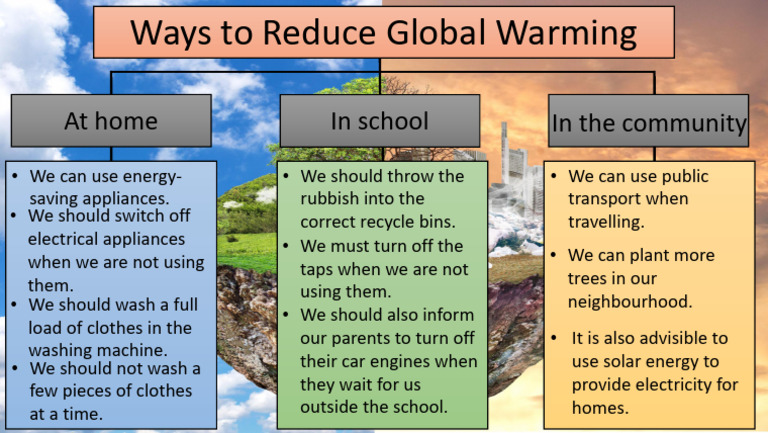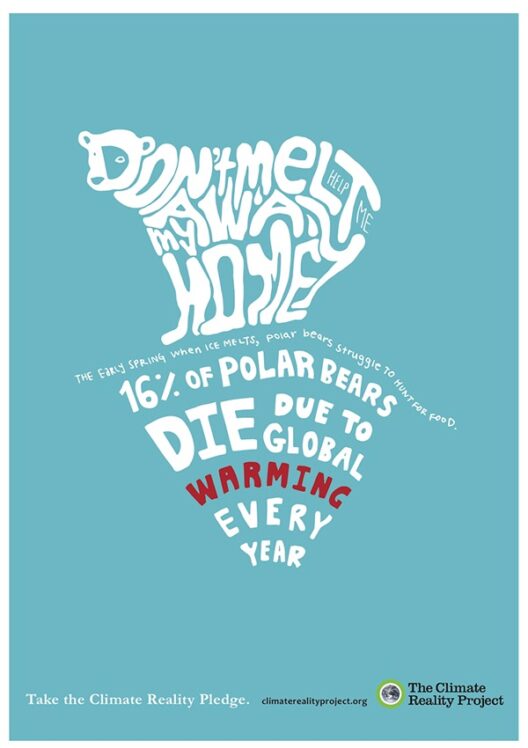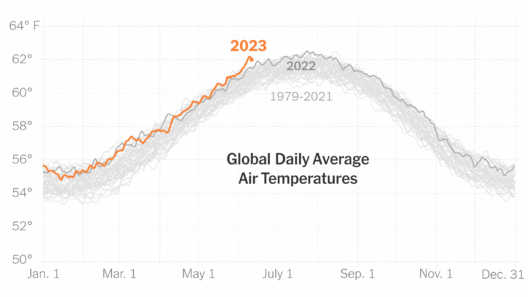Global warming is an alarming phenomenon that poses a significant threat to our planet’s ecosystems, human health, and overall quality of life. As individuals, we possess the agency to effectuate tangible change and mitigate the impact of climate change through conscientious actions. Herein lies a comprehensive guide on how to do your part to slow down global warming, complete with practical steps that can be adopted today.
One of the most pressing sources of greenhouse gas emissions is transportation. Therefore, adopting eco-friendlier modes of transport can significantly contribute to emissions reductions. Walking or cycling for short distances not only curtails carbon output but also benefits your health. For longer journeys, consider utilizing public transportation, carpooling, or investing in an electric vehicle. These alternatives can dramatically reduce your personal carbon footprint. Moreover, for those with the option, working remotely can lessen the need for daily commutes, which is another critical way to reduce emissions.
Energy consumption in homes is another pivotal area where reductions can be made. Implementing energy-efficient practices will not only save you money but will also diminish your carbon footprint. Start by replacing incandescent bulbs with LED alternatives. LEDs consume significantly less energy and have a longer lifespan. Additionally, consider investing in appliances that have high Energy Star ratings, as they are designed to use minimal energy. Regular maintenance of heating and cooling systems can also ensure optimal efficiency, reducing the amount of energy needed to maintain a comfortable home temperature.
One of the simplest yet effective strategies is to be mindful of water usage. The energy required to heat water accounts for a significant portion of household energy consumption. Simple changes, such as taking shorter showers, fixing leaks, and using cold water for laundry, can conserve both water and energy. Furthermore, utilizing water-efficient fixtures, such as low-flow faucets and showerheads, can further decrease water and energy consumption.
In conjunction with reducing energy usage, you might consider exploring renewable energy options. If your community allows it, switching to a renewable energy provider or installing solar panels can drastically decrease reliance on fossil fuels. Many regions offer incentives for solar energy installation, so it may not be as financially daunting as perceived. Over time, these investments not only benefit the planet but can also lead to significant savings on energy bills.
Beyond personal habits, dietary choices also play a crucial role in combating climate change. The production of meat, especially beef and lamb, generates a considerable amount of greenhouse gases. By reducing meat consumption, even just a few times per week, you are making a positive impact. Incorporating more plant-based meals into your diet not only contributes to health benefits but also reduces the demand for energy-intensive livestock farming. Exploring local produce and supporting sustainable agriculture can further bolster your efforts, as locally sourced foods generally have a lower carbon footprint than imported items.
Waste management is another crucial area where individuals can make a difference. Reducing, reusing, and recycling should be your rallying cry. Simple actions like opting for reusable bags, bottles, and containers significantly diminish single-use plastic waste. Composting organic waste diverts it from landfills while enriching the soil for gardens, thereby fostering a cycle of sustainability. Many communities have resources or programs to assist residents with waste reduction; taking advantage of these can enhance your contribution.
Moreover, education and advocacy are powerful tools in the fight against global warming. By informing yourself and sharing knowledge about climate issues with others, you can create a ripple effect. Engaging in discussions and advocating for climate-friendly policies at local, state, or even national levels can amplify your impact. Supporting legislation that prioritizes renewable energy, conservation, and sustainable practices fortifies the collective efforts to combat climate change.
Civic engagement doesn’t stop there; participating in local clean-up initiatives or tree planting events helps to restore natural ecosystems. These activities foster community spirit and enhance biodiversity, which are essential for a resilient environment. Collaborating with local environmental organizations can provide opportunities for impactful engagement and further augment broader sustainability efforts.
Another option is to effectively utilize technology. Various apps and platforms exist that promote sustainable practices, such as tracking your carbon footprint or discovering local green initiatives. Staying informed about environmental news will empower you to make informed decisions that align with climate action goals. Remember, even small, individual actions, when multiplied by millions, can lead to a significant change.
Finally, it is essential to acknowledge the psychological aspect of climate action. Engaging with nature, practicing mindfulness, and appreciating the beauty of our environment can inspire stronger commitments to sustainability. Connecting with the natural world fosters a sense of responsibility; it encourages individuals to protect what they cherish. When people recognize the intrinsic value of the environment, they are more likely to actively partake in its preservation.
In summary, the quest to slow down global warming is a multifaceted endeavor. From making conscientious transportation choices to being mindful of energy usage, dietary adjustments, waste management, and civic engagement, there are ample avenues for individuals to contribute. Each small step, when taken collectively, can culminate in substantial progress towards a sustainable and healthier planet. The responsibility lies within everyone, and by integrating these practices into daily life, we can usher in a transformative shift in how we coexist with our environment.








